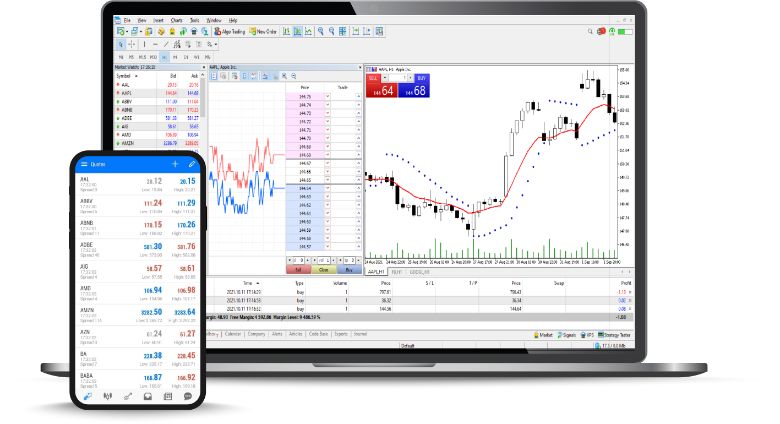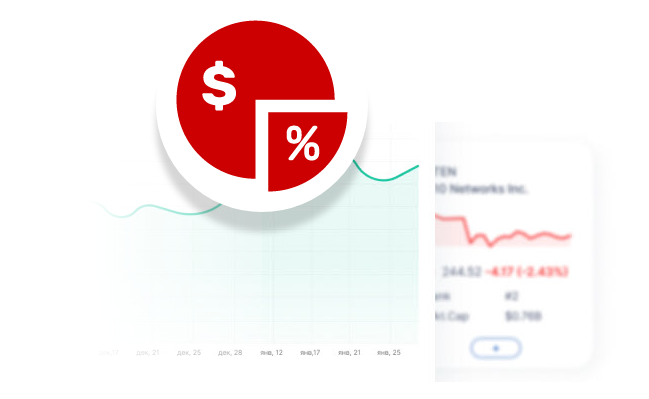Stocks
What are Stocks?
Stocks represent an asset class that allows an investor to own a part of a company and even have voting rights depending on the type of shares issued. Shareholders receive part of the company’s profits based on the amount of shares they hold.
Stocks are usually sold on the stock market. Companies go public and issue stocks as a means to build capital and grow their business. Investors on the other hand, buy stocks to diversify their portfolio and seek to gain profit from stock price movements.
By trading CFDs on Stocks with finofxcapital, you may go long or short on a range of individual stocks of renowned companies including Apple, Amazon, Goldman Sachs, Nike and McDonald’s and take advantage of market movement without owning the underlying asset.
Why TRADE STOCKS with finofxcapital?
Explore opportunities in top-class stocks across multiple industries and benefit from:
- Reliable trading on our powerful MT5 platform.
- No Commissions.
- Dividend payments.
- All trading strategies enabled.
- Leverage up to 1:20
HOW-TO
Trade STOCKS
Trading CFDs on stocks means you speculate on the price of a company’s stock which constantly fluctuates. Stock prices are usually affected by corporate performance and profitability as well as supply and demand, interest rates and the overall sentiment towards the company.
At the same time, traders benefit from dividend payments on long positions. When trading any stock with finofxcapital, the dividend adjustments on your long positions are credited to your account, and the applicable charges are automatically deducted when going short.
A stock trader should be closely following company earning reports and monitor news coverage around the company and the industry that it’s in.

What are Dividends?
Shareholders receive dividends. Dividend payment represents the amount shareholders receive from the profits of a company in which they hold shares and this is determined by the board of directors of a company.
Dividends are usually paid in cash, however, they can also be issued in the form of shares or other property.
The dividend is usually stated in terms of monetary value, for example, how many dollars each share will yield, but can also be referred to as a percentage of the market value of the share, a term also known as dividend yield.
Ex-Dividend
The date on which the dividend eligibility expires is called the ex-dividend date. If an investor owns shares the day before the ex-dividend date, they receive the next dividend payment.

Upcoming Stock Dividends
In order to ensure your trading account remains unaffected by the ensuing price action (solely as a result of the dividend event), we’ll make a cash adjustment to your account to reflect the equivalent dividend amount due.
